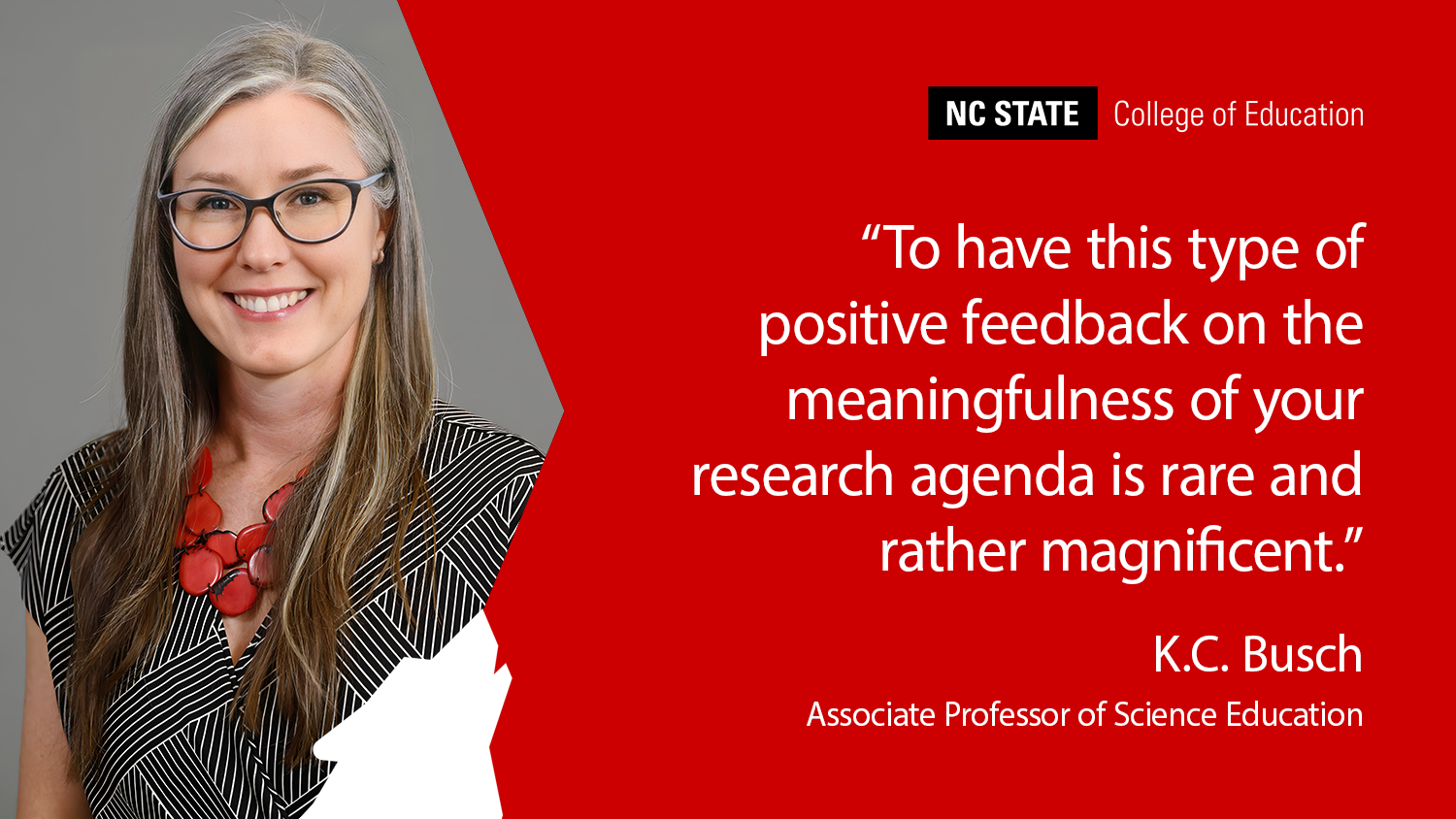When Associate Professor K.C. Busch first came to the NC State College of Education as a faculty member, others talked to her about the importance of setting up a research agenda.
Unsure of the best way to do this and overwhelmed by the prospect, Busch spent her first several months with the college speaking with more experienced faculty and getting advice. Ultimately, she decided she wanted to be purposeful in growing her research on climate change.
Now, that research is being honored by the National Association for Research in Science Teaching (NARST) 2024 Early Career Research Award.
“I consider it a huge honor to receive this award. When I look at the list of past awardees, I’m humbled to be able to be part of that list,” Busch said. “To have this type of positive feedback on the meaningfulness of your research agenda is rare and rather magnificent.”
NARST, a professional organization focused on improving science education through research, awards the Early Career Research Award each year to a scholar within seven years of earning their Ph.D. who demonstrates the greatest potential to make outstanding and continuing contributions to educational research. Criteria for the award include publications, conference participation, grant-funded activity and the focus of a scholar’s research agenda.
Since joining NC State, Busch’s research, which began with a broad focus on climate change education, has become more focused on the North Carolina Coast and the resilience of and challenges faced by those communities.
Her most recent research, funded by a $1.1 million CAREER grant from the National Science Foundation, is examining community-level scientific literacy and exploring how scientific information is used by community members to make decisions about climate change adaptation.
As part of this work, she is currently in the process of publishing a literature review and study of experts to conceptualize what community-level scientific literacy really is.
“This is setting the foundation for my own work and also, I think, is foundational for the field because if you want to study something, you have to have a clear, conceptualized notion of what you’re looking at,” Busch said. “That didn’t exist so, in this paper, we’re establishing a foundation and then taking those ideas and testing them out in the coastal communities to see if they make sense.”
Busch and her project team are currently conducting interviews with residents along the North Carolina coast, finding that while they use different language, they are often describing the same ideas as scholars. However, community members tend to have a broader focus on what is important to them.
“The scholars [in the literature review] talk a lot about scientific knowledge and scientific data and community members see that as only a piece of the puzzle,” Busch said. “I think community members have much more focus on the social aspects and the economic and political contexts.”
As Busch prepares to receive her Early Career Research Award in a March 18 ceremony, she said the honor serves as motivation to continue on her current path.
“Awards often applaud you for your past accomplishments, but the way that I’m interpreting this award is that it is inspiration for moving forward with my work,” she said. “It just bolsters my confidence and ability to continue the work that I’m doing, so that’s the gift that it gives.”
- Categories:



